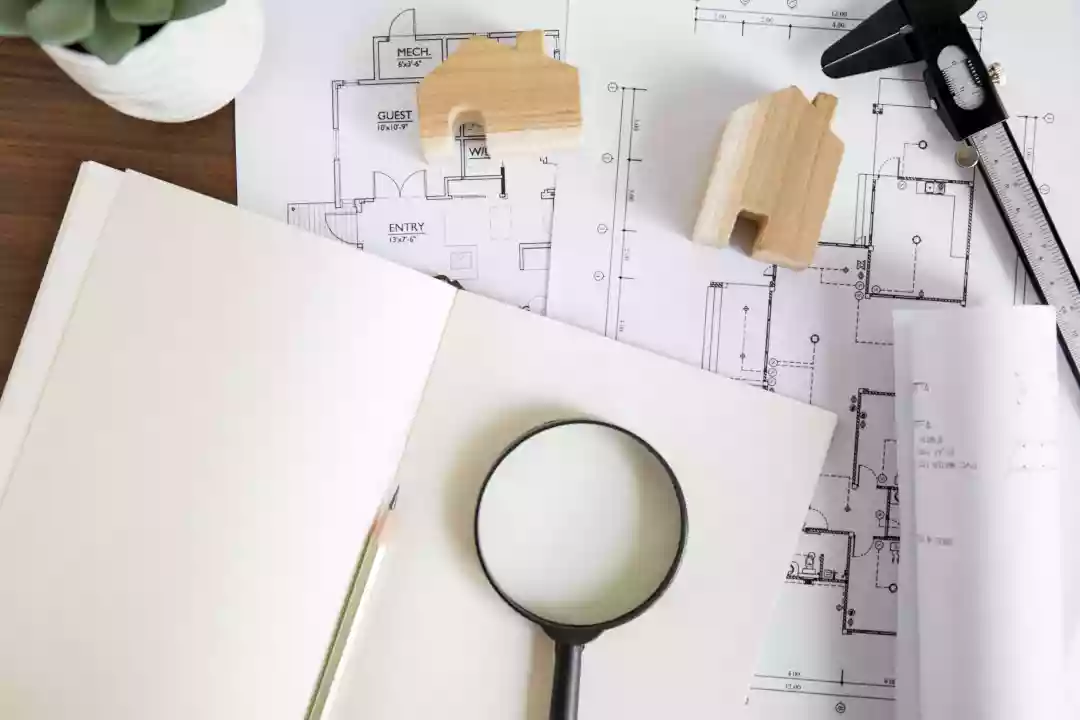Do I need to get a survey?
If you’re considering buying a house, it’s important to get a property survey. Carrying out a survey can uncover any potential problems with the property, allowing you to make an educated decision on whether or not to proceed with the purchase. Without a survey, you might be unaware of any structural issues or potential risks, which could lead to costly repairs down the line.
You’ll typically be offered one of three kinds of surveys when buying a property: a mortgage valuation, homebuyer report, or full structural survey. A mortgage valuation will assess if the property is suitable for the lender, and won’t highlight any hidden defects.
A homebuyer report provides a more detailed overview of a property’s condition and can be tailored to your budget and the condition of the property. It usually includes information on the walls, roof, and external structures, highlighting any significant issues.
Finally, a full structural survey provides the most comprehensive assessment of a property’s condition. This survey can look at every aspect of a house, from big issues like damp and rot, to small details such as insulation. All major and minor defects will be reported, and advice on how to solve any problems will be provided.
Why do I need a survey?
A property survey is an essential part of the home-buying process, as it can reveal potential issues with the house that you wouldn’t otherwise know about. Problems that can be identified by a homebuyer report include anything from subsidence and damp to electrical faults.
Having this kind of knowledge is especially important when buying an older house, as these properties often come with additional maintenance costs that you should take into consideration. Of course, if serious issues are uncovered in the survey, you may decide to withdraw your offer or request the seller to carry out repairs before committing to the sale.
Carrying out a survey also gives peace of mind. Knowing that the property is structurally sound and free from major defects means that you can move in without the worry of unexpected surprises. This can save time and money in the long run, as any issues such as drainage or foundations can be spotted in advance, leaving plenty of time to arrange repairs.

Need assistance finding building surveyors near you?
Get a QuoteWhat are the risks of not getting a property survey?
If you choose not to get a property survey, you could either be unaware of any existing defects or end up facing unexpected expenses after moving in. Structural defects, such as subsidence or damp, could be major issues and cost a lot of money to fix. Even something seemingly minor, such as a faulty boiler, can add up to hundreds of pounds.
Not only this but failing to get a property survey could invalidate any buildings insurance you have taken out. Insurance companies usually require proof that a property is in a good state of repair in order to provide cover, so having a survey report is essential.
Do I need a house survey for a new-build home?
If you’re buying a new-build house, a house survey isn’t absolutely essential and some lenders don’t even require one. That being said, it’s still beneficial to get a property survey, as new-build homes may come with their own set of issues. For example, a survey could detect drainage problems or identify areas where repairs have been poorly executed.
Even if you’re planning on buying a recently built house, it’s still worth getting a survey. By doing so, you’ll have peace of mind that all aspects of the property have been properly assessed and that there are no hidden problems.
What are the different types of house surveys?
There are three main types of property surveys, each of which varies in depth and cost. A mortgage valuation is a basic survey for lenders, which simply determines the market value of the property. It’s usually the cheapest option and rarely includes in-depth information.
A homebuyer report is the next step up, providing a thorough assessment of the property’s condition. All major and minor defects will be noted, and advice on how to rectify them will be provided.
Finally, a full structural survey offers the most comprehensive assessment of a property. Every aspect of the house will be looked at, and all defects, however big or small, will be reported. This type of survey is particularly useful when buying an older property or a new build.
In this article:
